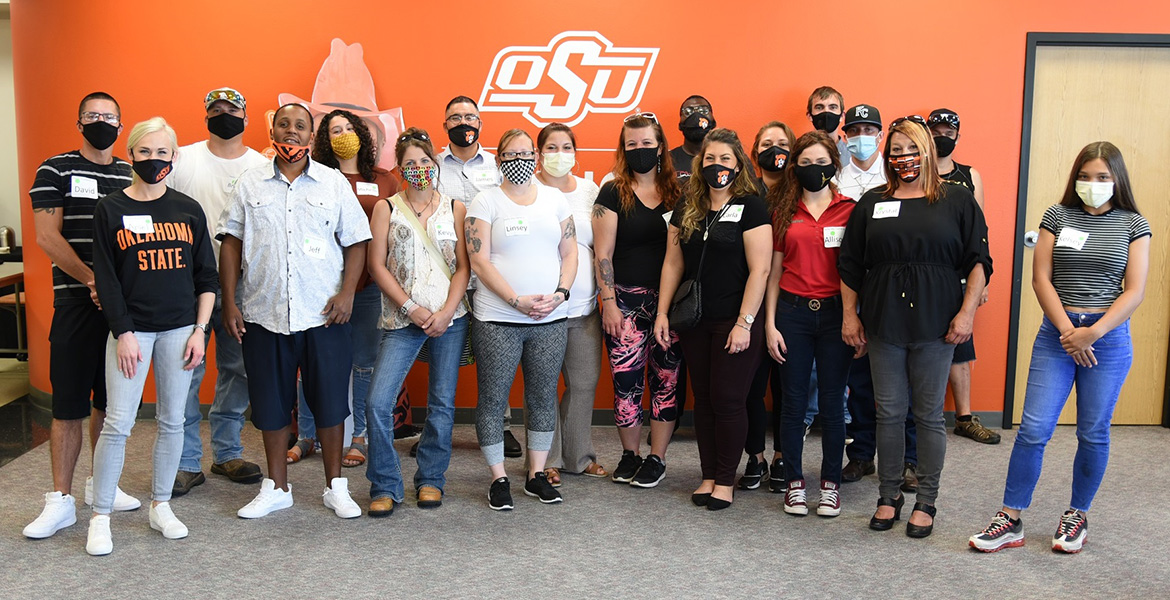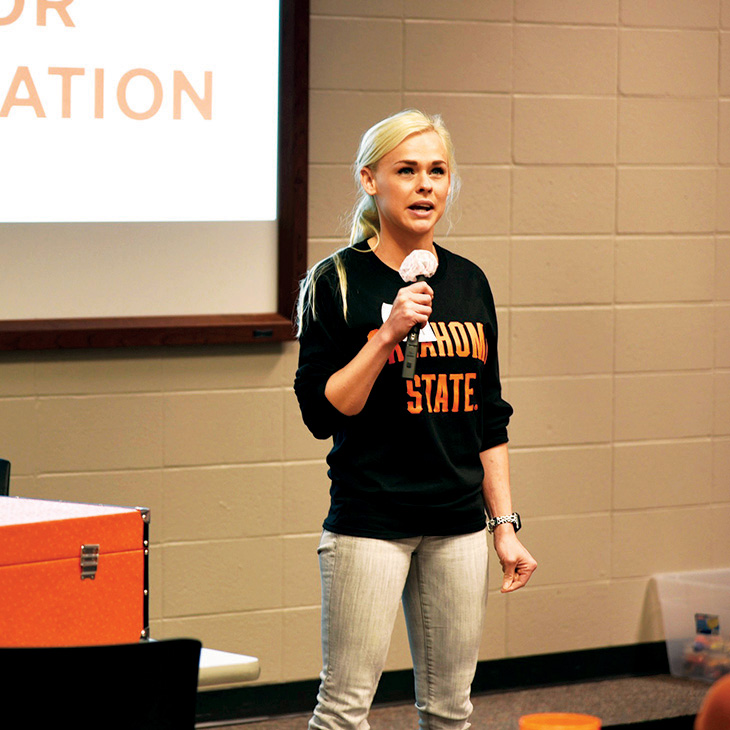
OSU-OKC launches Center for Social Innovation to help those in recovery
Tuesday, December 8, 2020
Ariel Beasley was a natural choice to lead the new Center for Social Innovation at Oklahoma State University-Oklahoma City. The center — launched in August 2020 with the help of a three-year, $1 million gift from the E.L. and Thelma Gaylord Foundation — consists of a variety of programs designed to help those recovering from addiction, incarceration, homelessness and other struggles.
As a 25-year-old, Beasley was addicted to drugs. She lived in an abandoned house with no electricity or running water. Then she lost custody of her 6-month-old son and was sent to jail.
When Beasley mentors participants in the Center for Social Innovation’s Growing Hope program, she can speak from personal experience.
“I am able to not only relate to the struggles and barriers our participants are facing, but I also know how to navigate them successfully,” Beasley said. “I know the path and can show them the way.”
Participants in Growing Hope are immersed in an intensive, 16-week schedule that provides enrollment in college courses, life skills training and resume-building opportunities.
Beasley meets with Growing Hope participants — many of whom are overcoming some combination of addiction, incarceration or homelessness — each day on the OSU-OKC campus.

Students are referred to the program from local nonprofit partners like ReMerge, Pivot and the Oklahoma County DUI/Drug Court.
Through partnerships with these agencies and several others, the Center for Social Innovation came into existence over the past two years. It features not only the Growing Hope program, but a floral design training program for clients of the Curbside Chronicle, free driver’s education courses for low-income teens and those in the foster care system, and other outreach efforts.
“OSU-OKC is committed to helping each member of our community reach their potential,” said Brad Williams, president of OSU-OKC. “This work represents the soul of the A&M system as it transforms our state one person at a time.”
Beasley’s transformation from addict to senior director of the Center for Social Innovation began when she entered Oklahoma City’s ReMerge program, a diversion program for pregnant women and mothers facing incarceration.
She started at ReMerge in May 2016, after losing custody of her son, saying she was intent on doing “everything that was asked of me.”
By November of that year, Beasley was reunited with her son. She landed an internship that turned into a full-time position at an Oklahoma City oil and gas company.
“Being in that environment pushed me to become the best version of myself,” she said. “I was given opportunities that, along with hard work and determination, got me to where I am today.”
It’s that path of redemption that serves as inspiration to students taking part in the Growing Hope program.
Participant Michelle Tubby was referred into Growing Hope through the Oklahoma County Drug Court. Her battle with addiction started when she was a young child, she said, as she fell victim to her mother’s frequent drug use.
“My mother started getting me high as a toddler, and it only progressed from there,” Tubby said. “I have suffered multiple forms of abuse and trauma.”
"OSU-OKC is committed to helping each member of our community reach their potential. This work represents the soul of the A&M system as it transforms our state one person at a time."
Through Growing Hope, Tubby is enrolled in a pair of classes at OSU-OKC this fall — English composition and student success strategies.
She said she views the opportunity to get started on a college education as “a shot to do something so much better.”
“My journey is one crazy story,” Tubby said. “I have been blessed with this opportunity. Without this, I would never have been able to have a shot at life.”
Beasley said she believes therein lies the beauty of the Growing Hope program and the Center for Social Innovation.
“This program answers the ‘What now?’ question that people have after they turn their lives around,” she said. “This is going to give us an even better opportunity to break generational cycles of addiction, poverty, and domestic violence.
“I want the child of one of our participants to say, ‘Not only did my mom get sober, but she got sober, went to college and chased after her dreams. Now I believe I can do that, too.’”
